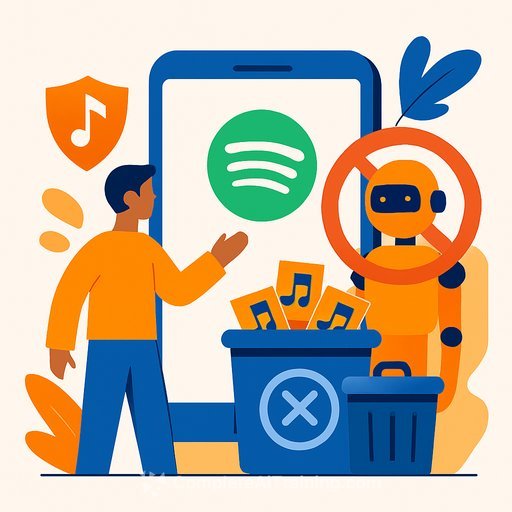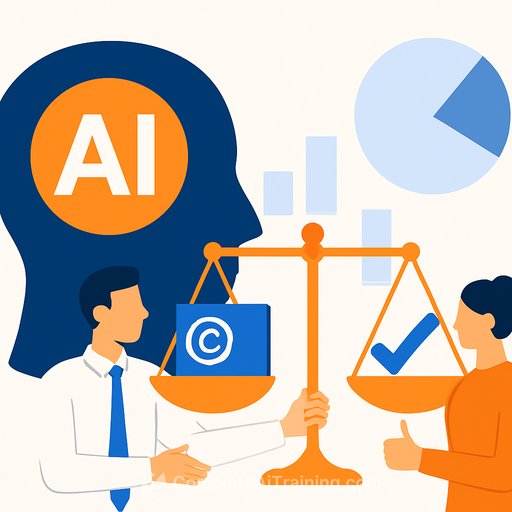Spotify Tightens AI Rules: What Creators Need to Know
AI is under heavy scrutiny in music, and Spotify is moving fast to protect its platform. The company says it has removed more than 75 million "naughty" tracks in the past 12 months for spam, fraud, and other abuses.
In a blog post, Spotify wrote: "The pace of advances in generative AI technology is very fast and sometimes troubling, especially for creative people. On the best possible side, AI opens up extraordinary new ways for artists to create music and for listeners to find it. However, on the worst hand, AI can be used by criminals and 'content farms' to confuse or deceive listeners, put 'garbage' into the ecosystem, and disturb authentic artists who are building their careers."
For creatives, this is a clear signal: responsible AI use is welcome; shortcuts and impersonation are not.
What's changing
- Stronger impersonation rules: New policy guidance targets AI vocal cloning and fake uploads on official artist profiles. Claims related to AI voice cloning will be handled more explicitly.
- Anti-spam filter (rolling out this fall): A detection system will flag mass uploads, duplicates, SEO manipulation, and micro-tracks engineered to juice streams.
- AI disclosure in credits: Spotify is working with industry partners on standards that show where and how AI contributed to a track. The aim is transparency, not punishment.
What it means for your releases
Your reputation and royalties are on the line. These policies reward clean metadata, authentic performance, and transparent credits.
- Don't impersonate: Avoid voice cloning or likeness use without explicit permission. If you work with AI voices or models, keep proof of licenses and consent.
- Be transparent: If AI assisted composition, sound design, or vocals, expect to disclose it in credits as standards roll out. Keep session notes and version history.
- Skip spam tactics: No mass dumping of near-duplicates, SEO-stuffed titles, or ultra-short tracks meant to farm streams. Focus on cohesive releases that serve listeners.
- Clean metadata: Use accurate titles, genres, and credits. Don't keyword-stuff or hijack trending artist names.
- Protect your profile: Watch for unauthorized uploads or lookalike tracks. Report impersonation and fraudulent activity through official channels.
AI is still fair game-if you use it right
Spotify's VP and Head of Global Music Product, Charlie Hellman, clarified the intent: "We are not here to punish artists for using AI authentically and responsibly... But we are here to stop criminals from outsmarting the system."
- Use AI for ideation, arrangement drafts, or sound exploration-while keeping creative direction human-led.
- Document your process and collaborators. Credit AI contributions where relevant to maintain trust with fans and platforms.
Why this helps serious creatives
A cleaner catalog improves discovery for artists who play by the rules. It also reduces royalty dilution from spam and low-effort noise clogging playlists and search.
If you've invested in craft, brand, and growth, these guardrails protect your work-and your audience.
Sources and further reading
Skill up on ethical, practical AI for music
Want to use AI without risking takedowns? Learn tools and workflows that keep you compliant and creative.
Your membership also unlocks:






